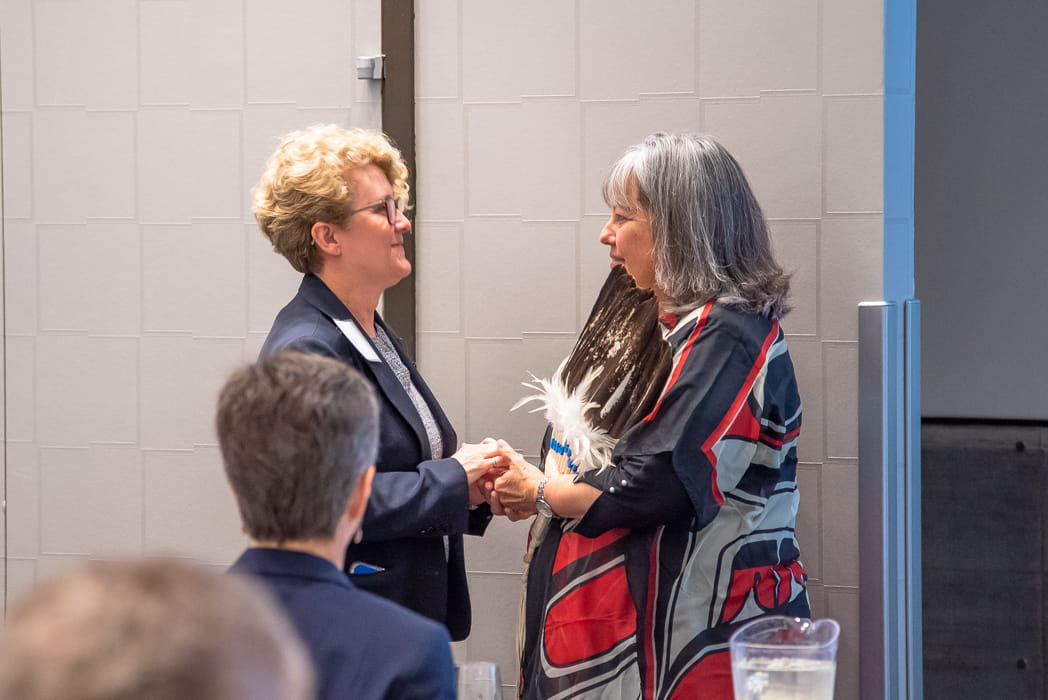The Nuclear Waste Management Organization (NWMO) continues to incorporate Indigenous Knowledge and Reconciliation into our work, while also sharing the world view with researchers from around the world.
As part of the NWMO’s 17th annual Geoscience Seminar and amid celebrations during the National Indigenous History Month, the NWMO shared our commitment to contribute to Reconciliation and interweave Indigenous Knowledge into our work. The annual gathering brings together experts in geoscience and from nuclear waste management from around the world to collaborate, share their expertise and learn more about the NWMO’s latest work.
At this year’s meeting in Toronto, Jessica Perritt, NWMO Senior Advisor for Indigenous Knowledge, highlighted the NWMO’s commitment to Reconciliation and how Indigenous Knowledge has enhanced our work, and discussed its particular relevance to geoscience.
While western science has very regimented methods, Ms. Perritt said "Indigenous ways of knowing is about the importance of relationship and the balance between relationships. It is important that when the NWMO is doing our work, we are using research methods that are appropriate for the knowledge system with which we are working." Indigenous ways of research could include asking for guidance to oral traditions shared by Elders or going to ceremony, which could help illuminate wildlife migratory patterns and other valuable information. Language itself also holds knowledge as Indigenous languages are descriptive in nature rather than definitive.
“There is a knowledge gap that needs to be recognized,” she explained. Indigenous peoples have had to learn western ways of knowing in order to navigate both worlds, “but for most of western society, they have not learned about Indigenous ways of knowing.”
“Just acknowledging there is a gap is a huge step, and having the courage to say, ‘I don’t know, and how can I learn more?’,” Ms. Perritt said, before adding that the study of rocks offers a great example.
“In Anishinabe translation, we call the rocks our grandfathers, and those rocks have a spirit,” she said. “We honour that spirit by starting our research by giving thanks to that spirit and asking it to guide our work and share its story with us.”
The point is “to create those environments where we can learn together,” Ms. Perritt said, and remembering, “Western ways of knowing is a way of thinking. It is not the way of thinking.”
The presentation is one of many activities the NWMO has planned throughout the month of June to celebrate National Indigenous History Month. Other planned activities include the launch of an eight-part video series, titled “Voices of Reconciliation,” attending celebrations on National Indigenous Peoples Day in Nathan Phillips Square in Toronto on June 21, the launch of Reconciliation training for NWMO staff, and lunch and learn events for employees about Indigenous Knowledge and history.

